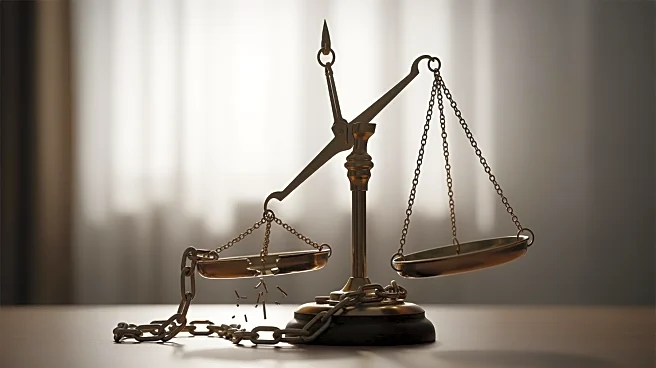What's Happening?
The International Court of Justice (ICJ) has reaffirmed its stance that Israeli settlements in the West Bank and East Jerusalem are illegal under international law. The ICJ's position is that Israel's
presence in these territories constitutes an occupation that must be ended. This view aligns with the broader international consensus, which sees the settlements as a violation of the Fourth Geneva Convention.
Why It's Important?
The ICJ's ruling has significant implications for Israeli-Palestinian relations and the broader Middle East peace process. The settlements are a major point of contention, with Palestinians and much of the international community viewing them as an obstacle to peace. For Israel, the settlements are seen as a security measure and a historical right. The ICJ's ruling could influence international diplomatic efforts and pressure Israel to reconsider its settlement policies. It also highlights the ongoing legal and ethical debates surrounding the Israeli-Palestinian conflict.
Beyond the Headlines
The ICJ's ruling underscores the complex legal and moral issues at play in the Israeli-Palestinian conflict. It raises questions about the enforcement of international law and the role of international bodies in conflict resolution. The ruling may also impact Israel's relations with other countries, particularly those in the European Union, which have been critical of the settlements. The decision could lead to increased calls for sanctions or other measures against Israel, further complicating the geopolitical landscape.









